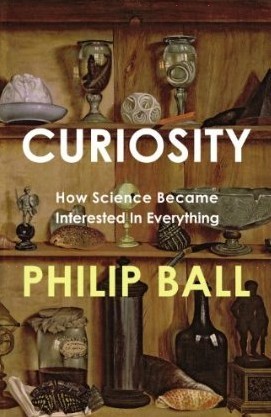What do you think?
Rate this book


480 pages, Unknown Binding
First published January 1, 2012
...
—why is the sea salty?
—have animals souls, or intelligence?
—has opinion its foundation in the animate body?
—why do human beings not have horns?
—how is it that sound in its passage makes its way through any obstacle whatever?
—how is it that joy can be the cause of tears?
—why are the fingers of unequal length?
—why, if you have intercourse with a woman after she has lain with a leper, will you catch the disease while she will escape?
—what reason is there for the universality of death?
—why do we need food so frequently, or at all?
—why are the living afraid of the bodies of the dead?
—how is the globe supported in the middle of the air?
—why does the inflow of the rivers not increase the bulk of the ocean?
—why, if a vessel be full and its lower part open, does water not issue from it unless the upper lid be first removed?
—when one atom is moved, are all moved? (since whatever is in a state of motion moves something else, thus setting up infinite motion.)
—why do winds travel along the earth's surface and not in an upward direction?
—why does a sort of perpetual shadow brood over the moon?
—granted that the stars are alive, on what food do they live?
—ought we regard the cosmos as an inanimate body, a living thing, or a god?— Adelard of Bath (c.1120)
this was more than a case of 'look what I've got'. The power with which Wunderkammern were imbued was... in that they created their own complete microcosm: a representation of the world in miniature... By possessing this microcosm the collector-prince was not just symbolising but also in a sense exercising his mastery of the world. The cabinet acted as a kind of mental laboratory within which the relationships between things could be contemplated via a process that shared elements of both experimentation and Gnostic revelation.
let us consider four typical features of early modern experimental philosophers:
self-descriptions: experimental philosophers typically called themselves such. At the very least, they professed their sympathy towards experimental philosophy.
friends and foes: experimental philosophers saw themselves as part of a tradition whose “patriarch” was Bacon and whose sworn enemy was Cartesian natural philosophy.
method: experimental philosophers put forward a two-stage model of natural philosophical inquiry: first, collect data by means of experiments and observations; second, build theories on the basis of them. In general, experimental philosophers emphasized the a posteriori origins of our knowledge of nature and they were wary of a priori reasonings.
rhetoric: in the jargon of experimental philosophers, the terms “experiments” and “observations” are good, “hypotheses” and “speculations” are bad. They were often described as fictions, romances, or castles in the air.